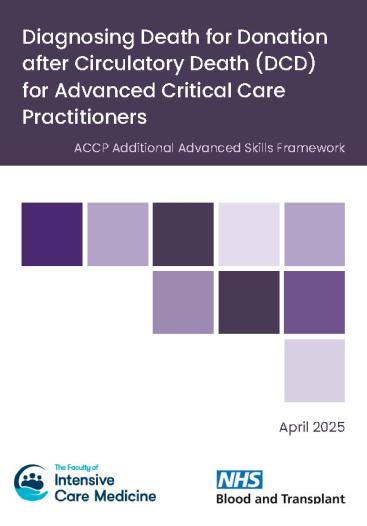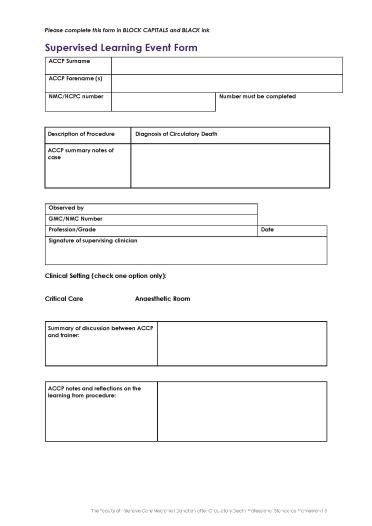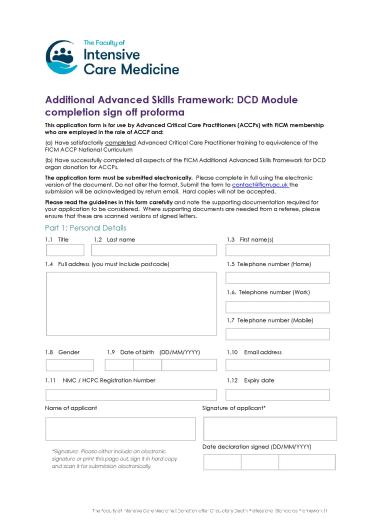ACCP ASF: Diagnosing Death for Donation after Circulatory Death
The ability to deliver safe and effective care for DCD donors and their family is a nuanced aspect of adult critical care which commands excellence in clinical practice together with benchmarked training and assessment. For some units the ability to have Advanced Critical Care Practitioners (ACCP’s) able to safely deliver this aspect of care is essential for service provision and ensuring every donor opportunity can be facilitated.
To enable ACCP’s to diagnose circulatory death in the context of DCD donation the following competency, in collaboration with NHSBT, has been developed.
The local Clinical Lead for Organ Donation (CLOD) and ICU Clinical Lead must agree and ensure local governance arrangements are in placed with activity reviewed and reported to the CLOD.
This is the second version of the Additional Advanced skills framework having been reviewed within the FICM ACCP Sub-Committee, FICM Careers, Recruitment & Workforce Committee and Clinical Leads in NHSBT together with hearing feedback from units across the UK.
Assessment Scenarios are available to Trainers on request.
Please contact contact@ficm.ac.uk to request these.
Aims
The aims of this Advanced Critical Care Practitioner (ACCP) DCD competency are to:
- Enable ACCP training to a nationally agreed standard by FICM and NHSBT for the diagnosis of death in the context of DCD organ donation.
- To describe the core theoretical knowledge, practical skills and professional judgment required of an ACCP in the diagnosis of death in the context of DCD organ donation.
- The competences identify knowledge, common and specialist elements, which are deemed essential to the role, while allowing for flexibility within local settings to meet service needs.
- Each individual practitioner will take professional responsibility for their autonomous practice including acknowledgement of their limitations and when to ‘refer the patient on’ to medical colleagues or other appropriate professionals.
Want to know more?



